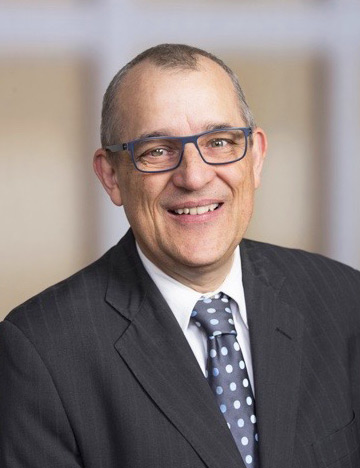
Each day, Americans make choices to trust the opinions of people they deem “experts.” But how should individuals determine what qualifies an expert?
Roger Koppl’s Praxis talk, “Expert Failure, Faulty Forensics, and Fake News” last Thursday evening sought to answer that question. The purpose of Koppl’s talk was to shed light on the general public’s widespread problem of accepting the advice of so-called experts without question. These experts in business, economics, politics, and more assert their opinion as fact, and unfortunately, the public takes these opinions as just that.
“They are humans who are motivated by the same thing as other humans with the same degree of self-interest,” Koppl said.
Koppl, a faculty fellow for the Forensic and National Security Sciences Institute at Syracuse University, has spent years analyzing this issue. He presented his book, “Expert Failure,” and discussed the ways society incorrectly views “experts.” Koppl argued that the general public has a misunderstanding about the credibility of elites and that, “until this book, there was really no coherent book on experts.” Koppl claimed that elites from many fields are not actually experts. In his opinion, people put too much stock in the opinions of these elites rather than realizing that they make human errors just like everyone else.
“Some experts are wise, some experts are fools, but all in the same proportions as non-experts. Experts are not different in their motivations, their character, or anything,” Koppl said.
“The expert chooses what expert advice he wants to share with the non-experts,” Koppl said.
Koppl’s key fundamental assumption is that the more “expert” advice on any particular topic, the greater the probability for mitigating error. For instance, in one of his charts, he distinguished between various people society upholds as experts, separating them based on the degree to which they monopolized their respective markets. According to Koppl, a lack of competition leads to monopoly-control on expertise, and then the herd-mentality kicks in: nobody wants to oppose the “expert.” Such a situation is, in Koppl’s opinion, detrimental to the prosperity and cultivation of a free people.
“We want the experts to save us from our ignorance,” Koppl said.
Unfortunately, he does not think so-called experts have the capacity to live up to such expectations. According to Koppl, there is a fundamental difference between how people used to think of experts and how they think of them today. Experts have always been defined by whether or not they have a specialty, but Koppl said this is an incorrect definition. He takes issue with the original definition of expertise because the division of labor that is created when experts are viewed as specialists creates a division of knowledge. This division means everyone is, in their own way, an expert.
But if everyone is considered an expert, then is anyone truly one? To address this problem, Koppl argued for the Theory of Information Choice. According to this theory, Koppl said, “an expert is anyone paid for their opinion.”
Senior Economics major Kyle Froisland said the concepts Koppl discussed are new to economics and hence thought-provoking.
“I thought it was very interesting how he interplayed Austrian and public choice economic ideas with practical applications, such as the way we manage economies,” Froisland said. “These ideas of entrepreneurship and expertise are pretty young in the field of economics. It hasn’t been talked about too much, so Koppl’s doing a lot of really cool research in these areas.”
Praxis president senior Melody McDonald acknowledged the validity of Koppl’s argument.
“Part of Koppl’s book talks about how we have this kind of preset mindset to just trust what an expert says and believe whatever they say, but a lot of experts are wrong,” McDonald said.
Koppl encourages Hillsdale students to apply for Whitman School of Management’s P.h.D. program at Syracuse University. The program annually accepts four students, and Koppl says that “the core of the enterprise is training the next generation of entrepreneurship scholars.”

